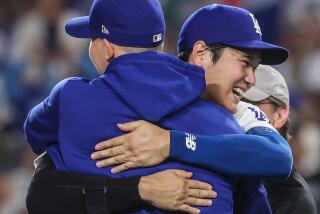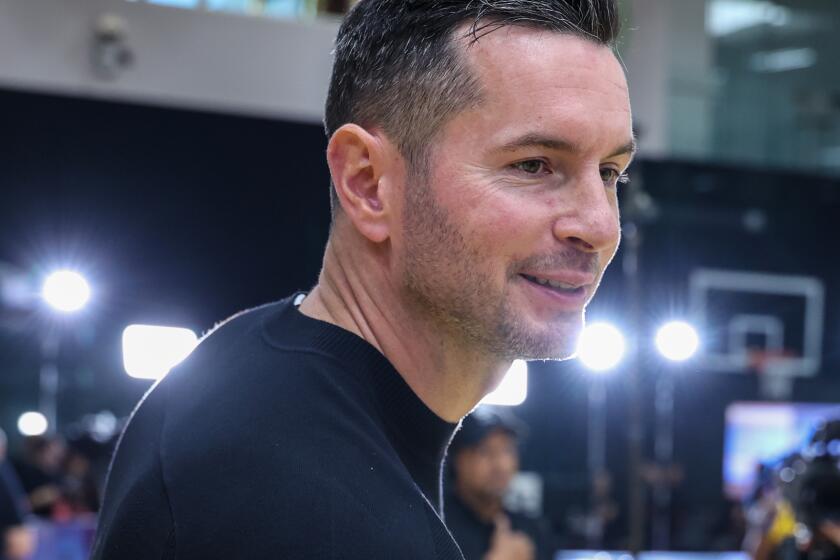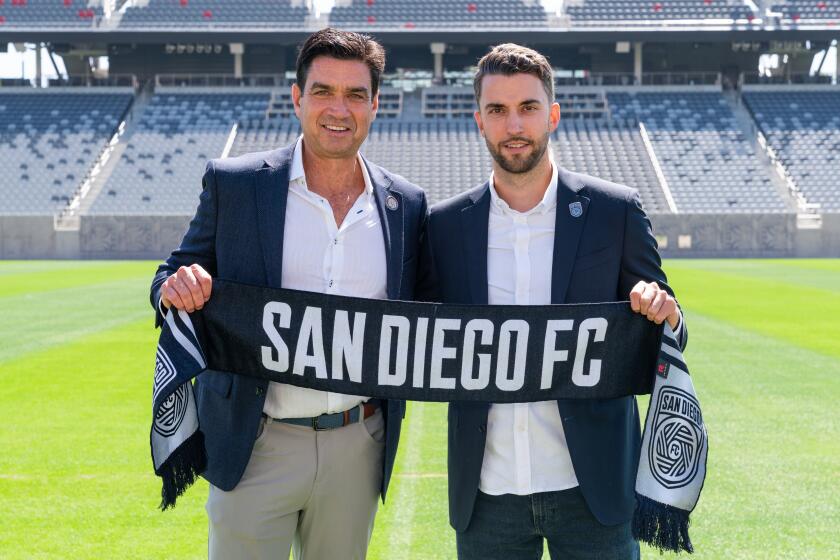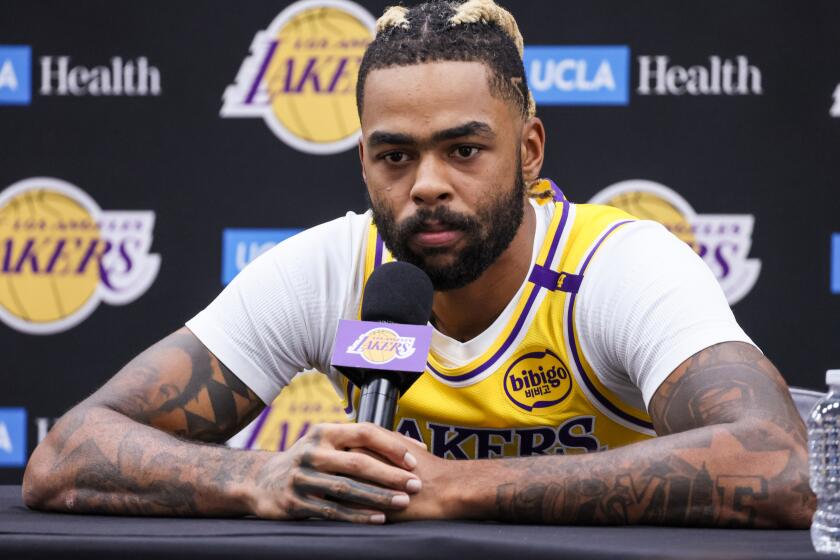Commentary : Why the Orioles Aren’t Singing
It’s too bad the Baltimore Orioles and their fans can’t have more fun these days. Spoiled by 20 years of sunny days, the Orioles find it hard to enjoy the common pleasures that keep baseball a joy for teams with less exalted traditions.
“I looked in the paper this morning and we’re ahead of 18 organizations,” said Manager Earl Weaver the other day. “This season hasn’t been as good as we want, but we’re having a pretty good year, whether anybody knows it or not.”
Nobody knows it.
Not the normally placid fans here who have learned how to mutter and sometimes boo. Not owner Edward Bennett Williams, who promises off-season shakeups and calls this his “most frustrating and disappointing season in 25 years in sports.”
And certainly not Eddie Murray, the central Oriole, who’s so sick of being criticized and scapegoated that he said he wanted to be traded.
Even Weaver, when bringing up whether he’ll manage here in 1987, says, “If they want me back.”
Expectation can be a goad toward a goal. It also can be a huge burden.
For the Orioles, it’s now a stone.
If the Orioles had not been the best team in baseball from 1960 until 1983, if they had not been world champs in 1983, if the team had not added five huge-salary players in the past two off-seasons, it would be far easier to view this team cheerfully.
If the Orioles were to finish strongly, it’s likely they would finish second in the American League East. They also would win 90 games and might end up with the third best record in baseball.
For a team that has finished fifth and fourth in its last two seasons, and which is fifth, that would seem to be a wisely modest goal.
Yet the Orioles still are obsessed with winning a pennant that probably is not only beyond their grasp but beyond their desserts.
What is the source of the Orioles’ grumpiness, their impatience, their unwillingness to wait a short while until such players as Jim Traber, Larry Sheets, Mike Young and Floyd Rayford can establish themselves completely? What’s the rush? The team has the third best earned run average in the league and a tolerably young starting staff. Why do the Orioles only talk about winning now, instead of speaking--as they did for years--about solidifying their foundation and their fundamentals?
Tone is set at the top; the Orioles’ mood of mild irritability starts with its owner. Few men worry like Williams. He has brought the tension level of a major law firm or corporation to a franchise that, for decades before he arrived, was a relaxed mom-and-pop operation.
In the ‘80s, the laid-back approach to pro sports may be archaic. Vast payrolls and free agent wars make the brass on every team jumpy. Nonetheless, as George Steinbrenner has shown in New York, a point of diminishing returns quickly arrives when a team starts to act as though performance were a commodity that can be bought. Because you pay a player $1 million doesn’t mean he can produce like a million. Not even if he breaks his neck trying.
The Orioles now come dangerously close to adopting this accusatory, adversarial stance toward their players. When Rayford and Young had slumps, they were discussed as though their flaws were in their characters, not their swings. Now, it’s Murray, playing with multiple injuries and still producing at a 100-RBI-per-600-at-bat pace who gets the heat and the second guess.
The Orioles and their fans would do well to avoid imitating the mood of their owner--a man who, for all his successes and charm, is an obsessive competitor who puts abnormal pressure upon himself and those around him.
At the moment, Williams has Weaver walking a verbal tightrope. First, a touch of background. If you want to see Weaver go crazy, make one of three statements--any of which he takes to be prima facie proof of baseball know-nothingism. Say Cal Ripken should play third base. Say that Murray has a bad lackadaisical attitude. Or mention something nice about Alan Wiggins, the second baseman to whom Weaver said last month, “You are absolutely the worst ballplayer I have ever seen.”
So, last week, Williams said that he’d like to see Ripken play third; he wanted to have a talk with Murray about working out more in the winter, and he thought that “the jury is still out on Wiggins.”
Congratulations--the trifecta.
To boot, Williams said he’d be taking a more direct hand in decisions.
Was Weaver upset by these comments?
“No, it didn’t upset me,” said Weaver. “(But) I’m sure it did Eddie.”
How about Ripken?
“Cal? His words have gotta be, ‘What the hell more can I do?’ ”
Weaver then cited chapter and verse in his case that Ripken is the best defensive shortstop in the league “and if he was hitting .220 all anybody’d ever say about him was what a great shortstop he was.”
So, Weaver is at odds with the boss, right? Not on your life.
“All he has to do is pick up the phone, call me, and I’ll make any change he wants,” said Weaver. “I’ve had two owners and four general managers and I’ve never said ‘No’ to my boss. That’s not how it works. . . . Ed Williams is one of the great ones. He leaves you alone.”
There’s lots more wrong with the Orioles than Williams fretting and looming. But less angst from the top might help performance at the bottom. Baseball is still best approached as hard play, not hard work. The owner or manager who stresses the pleasure of play, rather than the desperate need not to fail, has a much better chance of winning.
For the manic-depressive Orioles, a team that thinks it should be great but persists in being merely good, tempers wear thin and the worst gets accentuated.
The Orioles don’t think they should be happy these days. So they aren’t.
More to Read
Go beyond the scoreboard
Get the latest on L.A.'s teams in the daily Sports Report newsletter.
You may occasionally receive promotional content from the Los Angeles Times.










